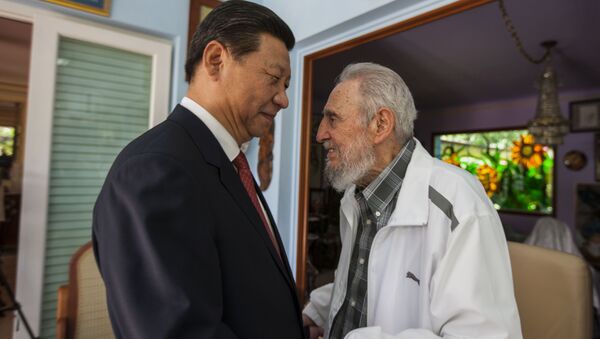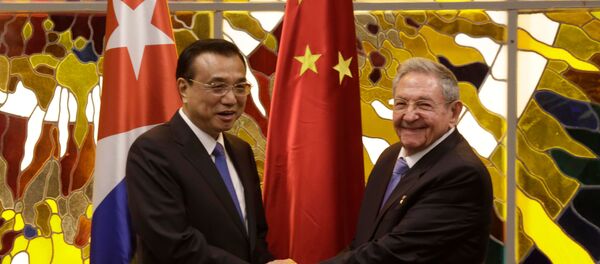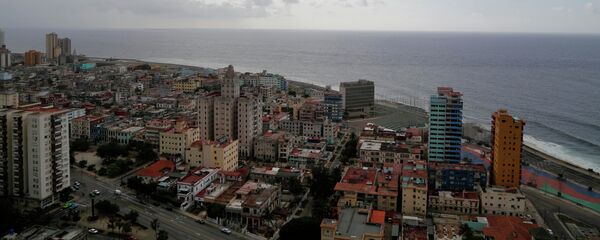In a separate message, Chinese Prime Minister Li Keqiang emphasized the importance of the Chinese-Cuban friendship and held out hope that the traditional partnership between the two countries would be strengthened for the benefit of both countries’ peoples.
Interviewed by Sputnik China, Yang Mian, an expert on foreign relations at China’s Institute of Communications, said that he expected Beijing and Havana to maintain their traditional ties of friendship and cooperation.
“China and Cuba are socialist countries, whose close ties developed during their joint struggle against the US global dominion. I don’t think that these relations will change with Fidel Castro's demise," Yang Mian said.
He added that he didn’t think that the death of Cuba’s longtime revolutionary leader would have any impact on the situation on the island.
“I don’t foresee any social upheavals inside the country as Fidel Castro had long handed power over to his brother Raul. Besides, the Cubans had already resigned themselves to the fact that their leader was going to die. I don’t expect any problems there any time soon either, but with Raul Castro being also advanced in years, the issue of a transition of power will eventually arise. Meanwhile, with the nation plunged in grief, any changes within the party and the state are simply out of the question,” he noted.
In 1960 Cuba became the first Latin American country to establish diplomatic relations with the People’s Republic of China, which is now Cuba’s second biggest trading partner after Venezuela. Boris Martynov, deputy director of the Institute of Latin American Studies in Moscow, said that with Fidel Castro gone, China’s role in Cuba will keep growing, just like elsewhere in Latin America.
“Cuba is a perfect place for Chinese investments and its geographical location at the junction of North, Central and South America makes it a perfect logistical center of sorts. Cuba lies close to the Panama Canal and there is now talk about the construction of an alternative Nicaragua Canal,” Martynov said.
“With five of the best Caribbean seaports located in Cuba many expect the ongoing economic reforms there to eventually determine its ties with the outside world, above all with China and Latin American countries, which have been cooperating with Havana despite the [US] blockade and political pressure by Washington.”
“This is what I hope for, but I’m also aware of the strength of the anti-Castro lobby in the United States whose members in Miami celebrated Castro’s death with fireworks.”
“This sentiment will not go anywhere, that’s why I don’t expect any radical changes here even if the US policy in the world changes under President Trump,” he noted.
In an interview with Fox TV, a top aide to US President-Elect Donald Trump warned Cubans against expecting normal ties with the US as long as their government continues cracking down on dissent, constrains religious freedoms and refuses to embraces an open market economy.
“Repression, open markets, freedom of religion, political prisoners — these things need to change in order to have open and free relationships, and that’s what president-elect Trump believes, and that’s where he’s going to head,” Reince Priebus told Fox News Sunday.




